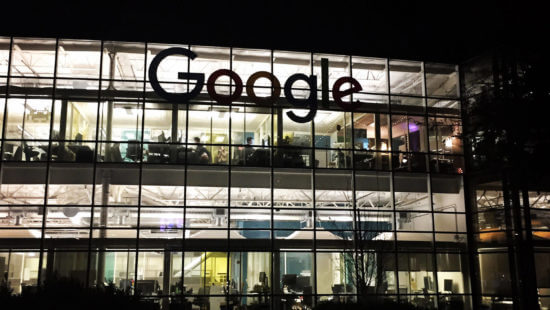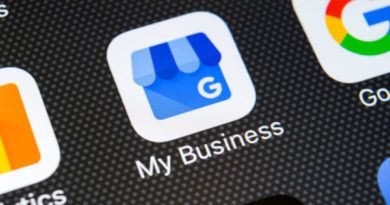Where Google is placing its bets in 2021
A look at where Google might be headed in 2021.
Google is investing to protect ad revenue
Even though Google has done a good job of diversifying, 80 percent of its revenue remains advertising based – from search results and the properties that they own. Google will continue to invest in new online ad features. For instance, Google is testing a larger font size in ad paid search ad headlines, with an eye toward improving click-through rates and driving more paid search revenue. Google is also trying to provide more ways to convert users in search results, an example being Google extending lead forms to YouTube and Discovery campaigns. Google wants to show advertisers the value of its platform to own the entire customer journey from awareness to click.
Device adoption
Another way Google is protecting its ad revenue is by encouraging device adoption. A really good example: Google’s investment in security firm ADT. Why did Google make this move? Well, Google is not interested in home security. Google wants ADT technicians to become more proficient installing Nest devices, which are Google’s smart thermostats. Many Nest owners don’t know that within a Nest thermostat is a microphone and speaker – a trojan horse for more Google Home voice devices. From there, it’s easy to see people doing voice queries through Nest. In turn, Google collects more data about its customers to improve its ad products. And, Google may even advertise.
Google also wants to get users to adopt Android devices. This is why we’re seeing Google build out features such as Verified Calls, which will tell you why a business is calling you. Google wants people using those devices to be more comfortable using Google’s ecosystem, where more advertising happens.
Google will enter new markets
Google is a global company. And increasingly it is acting like one. Google recently announced a $10 billion investment in India, a sign of its resolve to expand globally. India in particular represents a big opportunity in India for Google and its many services including Google Cloud, education, and other services. For Google, growth is all about expanding its footprint. And India, the world’s largest democracy, is a good place to start.
Local is massively important to Google
2020 reminded us of how valuable local businesses are to Google. We saw a huge growth of services to help local businesses stay open during COVID-19 (I recently wrote about them in Search Engine Land). What impressed me especially is how quickly Google rolled out these changes. Google had to. Local search remains an essential user activity on Google. Google needed to protect its turf.
Google also wants to make GMB listings more essential to business owners. For example, Google has expanded the GMB business messaging feature, made it easier for businesses to update their GMB profiles, and helped owners get easier access to performance analytics.
We also saw Google invest in Google Maps updates, another sign of Google’s investment in local. Google is also making Google Maps more relevant to current times, such as rebuilding its traffic data to help people travel during the pandemic.
In 2021, Google will work even harder to protect its relationships with local businesses.
Google is pushing hard into healthcare
Google is making a very active push in healthcare. Google now operates a cloud to help healthcare systems ingest patient data and manage Google algorithms against that data in way that is compliant with HIPPA. With the pandemic continuing to shape how we live, I see Google becoming a stronger partner to help healthcare systems use patient data to improve outcomes. I suspect if Google can get the privacy issues right, Google will be well positioned to help because of the power of its cloud platform and its army of data scientists.
I also see Google making a stronger push into virtual care. Healthcare systems have been pushing virtual care for years. Patients have not always been interested in adopting telehealth, but the tide has turned – and Google knows this. For instance, Google is partnering with Amwell to bring deliver healthcare solutions that run on Google Cloud. Google is not being complete altruistic here. Telehealth gives Google an avenue to help healthcare systems collect patient data including their total lifetime value, a possible boon to Google advertising.
Google is getting into education
Education is ready for Google, with both secondary learning and higher education being rocked by the pandemic. And Google is responding. Just in time for the 2020-21 school year, Google beefed up its virtual learning platform, Google Classroom, with 50 new features including more controls to make online learning safer. Anyone who has kids at home in secondary school appreciates the reality of trying to learn in a secure environment. Google is responding.
At the same time, I was also impressed with Google’s recent moves into higher education, an industry that has been upended by the pandemic. Google’s new certification program will take only six months to complete and at a much lower cost than attending a four-year college. And Google is putting its money where its mouth is by treating these new career certificates as the equivalent of a four-year degree for related roles. In 2021, I expect Google to expand this program with a more diverse curriculum.
Privacy is center stage
As we all know now, the Justice Department filed an anti-trust lawsuit against Google, saying that its business practices are harmful to users and competitors. The lawsuit said, “By restricting competition in search, Google’s conduct has harmed consumers by reducing the quality of search (including on dimensions such as privacy, data protection, and use of consumer data), lessening choice in search, and impeding innovation.”
The lawsuit will make privacy an even more front-and-center issue (although the larger issue in the lawsuit is Google’s alleged monopolistic practices). But the lawsuit is going to take a very long time to even make its way to the courts – and then possibly years to either get resolved or settled out of court. Google is very good at defending itself legally, and the company has deep pockets.
Google has prepared for the moment by taking very visible steps to show that it respects consumer privacy. For example, Google launched an ad disclosure schema to make it possible for consumers to see all the cookies tracking them on Chrome. Google’s aim: make a public record of its efforts to respect privacy. Meanwhile, Google will continues to push the boundaries of privacy. I find it interesting that consumers can launch “People Cards” that allow them to create their own knowledge panel – which of course makes it easier for Google to learn something about them and serve up more personalized ads. And consumers are doing the heavy lifting to create the cards!
Google is trying to be a more purposeful brand
Google, the company whose unofficial motto for years was “don’t do evil,” is trying to do good. For Google, doing good means doing what is both right and sensible. In 2020, we saw Google add “Black-owned” as a business attribute to local listings, a clear reaction to the Black Lives Matter movement. And Google updated Google Assistant to provide more mindful answers to questions about Black Lives Matter. These actions were both the right and sensible thing to do at a time when Google’s U.S. user base is increasingly diverse and it seeks to hire more black workers at senior levels.
In addition, Google’s attempts to help small business owners during the pandemic (which I mentioned earlier) are also an example of doing what is right and sensible. When Google said it was offering ad credits to SMBs affected by Covid-19, the company was being purposeful, yes – and at the same time, Google was protecting its base of future ad revenue.
What’s next?
As I write this column, the world seems as uncertain as it was when the pandemic hit in full force back in March. One thing I think Google is going to do more of in 2021: provide leadership in uncertain times. Google is stepping up to the center stage after a year in which the company was disrupted by the pandemic. Google will become a stronger partner to businesses, educators, and healthcare providers while extending its reach and providing some measure of certainty.


